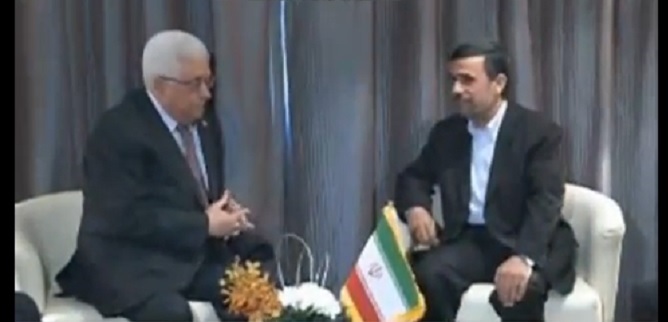The Palestinian Hamas faction is content to let its rivals in the Fatah faction reach out to Iran – despite a decades-old proxy relationship between Hamas and its Iranian sponsors – according to a report published last week by Al Monitor. Hamas officials who spoke to the outlet emphasized that any rapprochement between the two sides should be seen as Fatah altering its long-held stance opposing Iranian influence, and that in any case “the road to a true rapprochement between Ramallah and Tehran is still long.”
“Perhaps Tehran’s interests outweigh the interests of the Palestinians, as a part of its policy to ‘melt the ice’ in ties with neighboring Arab states,” he answered. “Thus, [Iran] hosting [Turkish Prime Minister Recep Tayyip] Erdogan embarrassed Tehran’s biggest Arab rival: Saudi Arabia. The latter is trying to encircle Iran to prevent it from expanding regionally.”
Meanwhile, the same Hamas official tried to downplay the repercussions of this visit, saying, “Hamas has no reason to panic. The road to a true rapprochement between Ramallah and Tehran is still long. The PA will face difficulties in pursuing a policy that differs from the Arab consensus — led by Saudi Arabia and Egypt — and that does not support strengthening ties with Tehran. Therefore, symbolic visits and diplomatic statements for purposes of flattery do not raise the fears of Hamas,” he added.
Evidence began to emerge last month of active moves by Fatah officials to deepen their ties with Iran, after years in which conventional wisdom held that relations between the Palestinian group and the Islamic republic were somewhere between chilly and functionally nonexistent. The assessments were not without their problems – in early 2013 Palestinian Authority (PA) President Mahmoud Abbas thanked Iranian President Mahmoud Ahmadinejad for Iran’s stance on Palestinian issues – but the ongoing rivalry between Fatah and Hamas placed limits on the degree to which Fatah and Iran could or would cooperate. Fatah officials regularly blasted Iran for interfering in Palestinian affairs via its sponsorship of Hamas. Hamas’s domestic and regional position has all but crashed in recent months, and efforts by Hamas to bolster its stature via spectacular terror attacks have repeatedly been disrupted. The new geopolitical configuration may have created an incentive for Iran to diversify its investment in Palestinian groups, but it may even be pushing Hamas to countenance closer coordination between Fatah and Iran as a way of bringing Fatah around to Iranian positions.
[Photo: AussieNews1 / YouTube]




